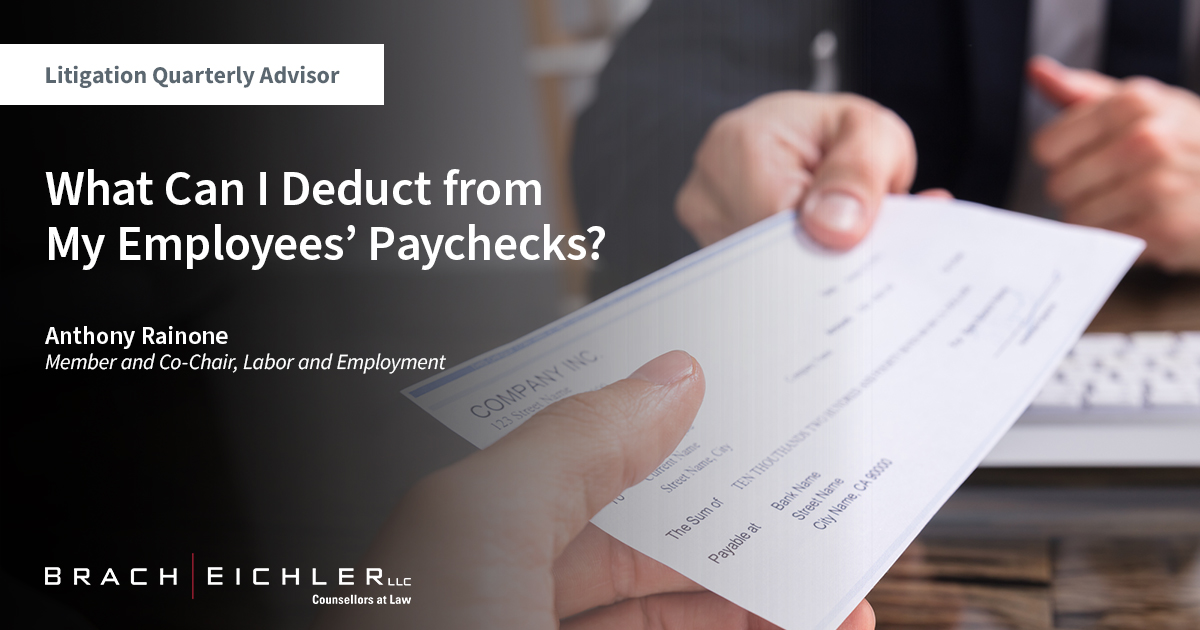What Can I Deduct From My Employees’ Paychecks?

July 10, 2023

Follow Us on LinkedIn
Stay updated with our latest news and insights.
*This is intended to provide general information, not legal advice. Please contact the authors if you need specific advice.













